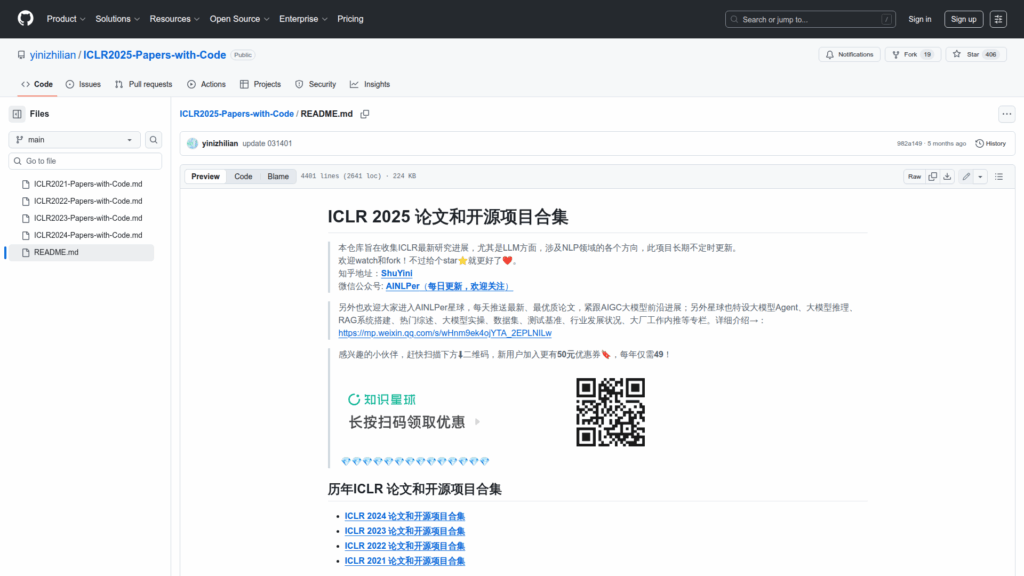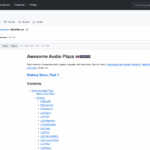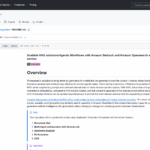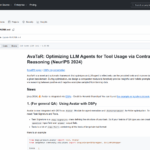ICLR2025-Papers-with-Code
Basic Information
This repository is a curated, regularly updated collection of papers and open-source code associated with ICLR 2025, with links and metadata gathered to help researchers track the conference output. The README states the project aims to collect the latest ICLR research progress, with an emphasis on large language models and NLP directions, and to maintain long-term updates. It aggregates accepted works across categories such as spotlight, poster, and oral, and also links to prior years collections for ICLR 2021–2024. Entries typically include paper citations and pointers to code repositories, demos, datasets and benchmark pages. The maintainer invites community engagement via watching, forking and starring, and records commit history to show recent updates and additions.








